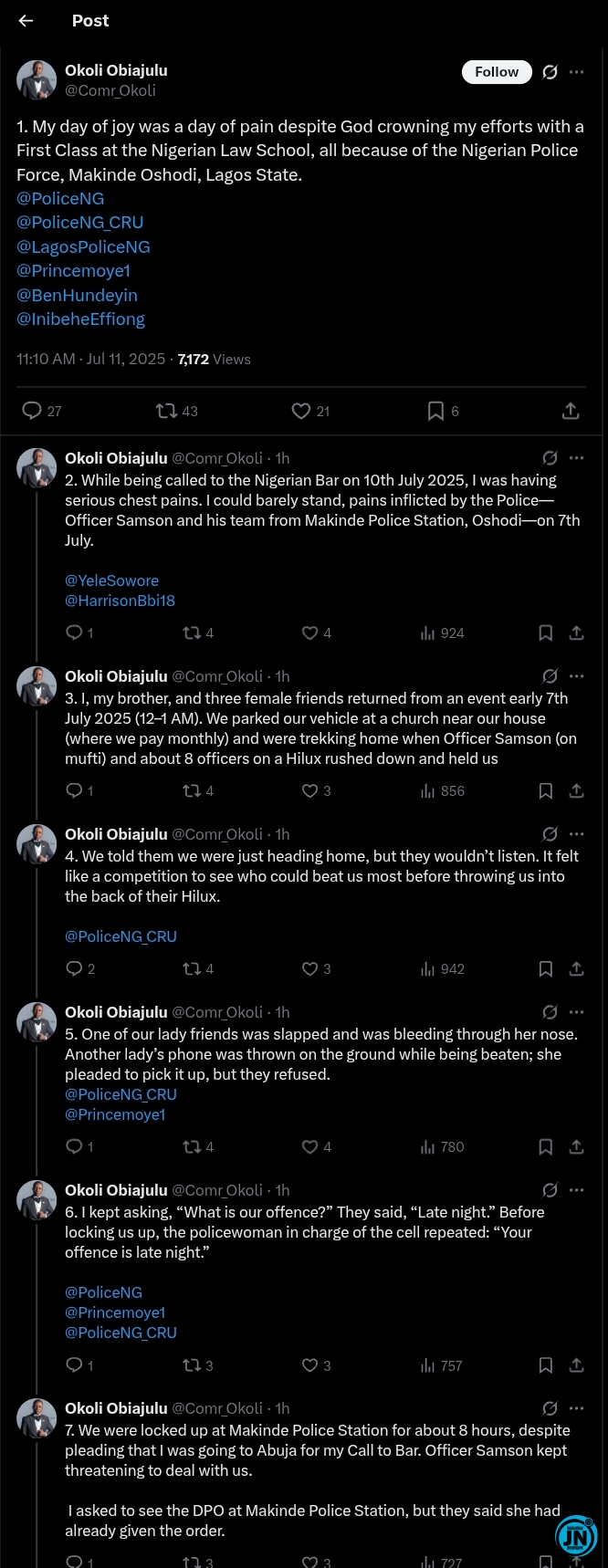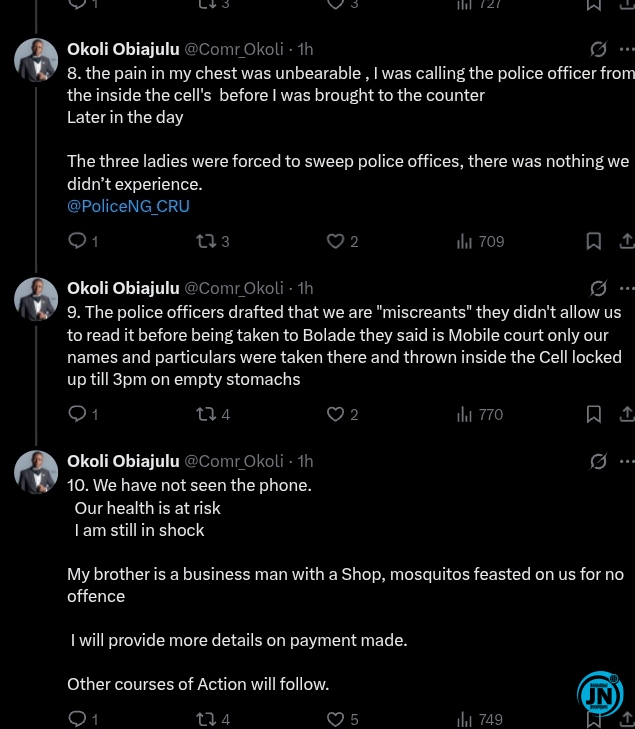A First Class graduate of the Nigerian Law School has shared a harrowing account of how his moment of academic triumph turned into a traumatic experience after allegedly being brutalised and unlawfully detained by officers of the Nigerian Police Force, Makinde Division, Oshodi, Lagos State, for the mere reason of being out “late at night.”
In a detailed and emotional account shared online, the young lawyer revealed that the incident took place in the early hours of July 7, 2025. He explained that he, his brother, and three female friends were returning from an event they had attended together. After parking their car at a nearby church where they pay monthly fees, they began walking home when a group of policemen arrived unexpectedly.
According to the victim, the officers, led by one Officer Samson, stormed the area in a Hilux vehicle and began assaulting them without providing any explanation or hearing their side of the story. “We told them we were just heading home, but they wouldn’t listen,” he wrote. “It felt like a competition to see who could beat us most before throwing us into the back of their Hilux.”
He further detailed the brutal treatment his friends faced: one of the female friends was slapped so hard that she began bleeding from her nose, while another had her phone smashed and then seized after also being physically assaulted. The group repeatedly asked what crime they had committed, only to be told “Late night” as their offence.
They were all taken to Makinde Police Station and detained for approximately eight hours. Despite his desperate pleas, explaining that he had a scheduled trip to Abuja for his Call to Bar ceremony, the officers ignored him. “I was going to Abuja for my Call to Bar. I kept telling them, but Officer Samson kept threatening to deal with us,” he wrote. “The pain in my chest was unbearable. I was calling the police officer from inside the cell before I was eventually brought to the counter.”
The ordeal did not end at the station. According to the law graduate, the female detainees were forced to sweep various police offices as a form of punishment and humiliation. Later, they were labelled “miscreants” and transferred to Bolade Mobile Court, where they were recorded without any formal trial or opportunity to defend themselves.
“They didn’t allow us to read anything before taking us to Bolade. We were locked up again till 3pm, on empty stomachs,” he recounted. This treatment left them physically and emotionally drained, with no access to proper food or medical attention throughout their detention.
The young lawyer shared that he continued to nurse severe chest pains from the assault even as he attended his Call to Bar ceremony on July 10, 2025. Despite being officially called to the Nigerian Bar—a moment that should have marked the culmination of his years of hard work and dedication—he described the day as bittersweet and overshadowed by pain.
“My day of joy was a day of pain,” he wrote. “Not because God didn’t crown my efforts—I graduated with a First Class—but because of what the Nigerian Police did to me just days before.” His experience has since drawn widespread outrage and calls for accountability from the Nigerian Police Force, as well as stronger protections for citizens against arbitrary arrest and police brutality.
The incident has sparked conversations about the continued abuse of power by law enforcement agencies in Nigeria, particularly against young people who are often targeted under vague accusations such as “wandering” or “being out late.” Human rights advocates have demanded a thorough investigation and appropriate disciplinary actions against the officers involved.
SEE POST:



